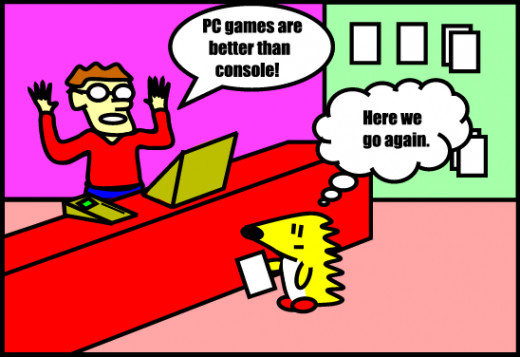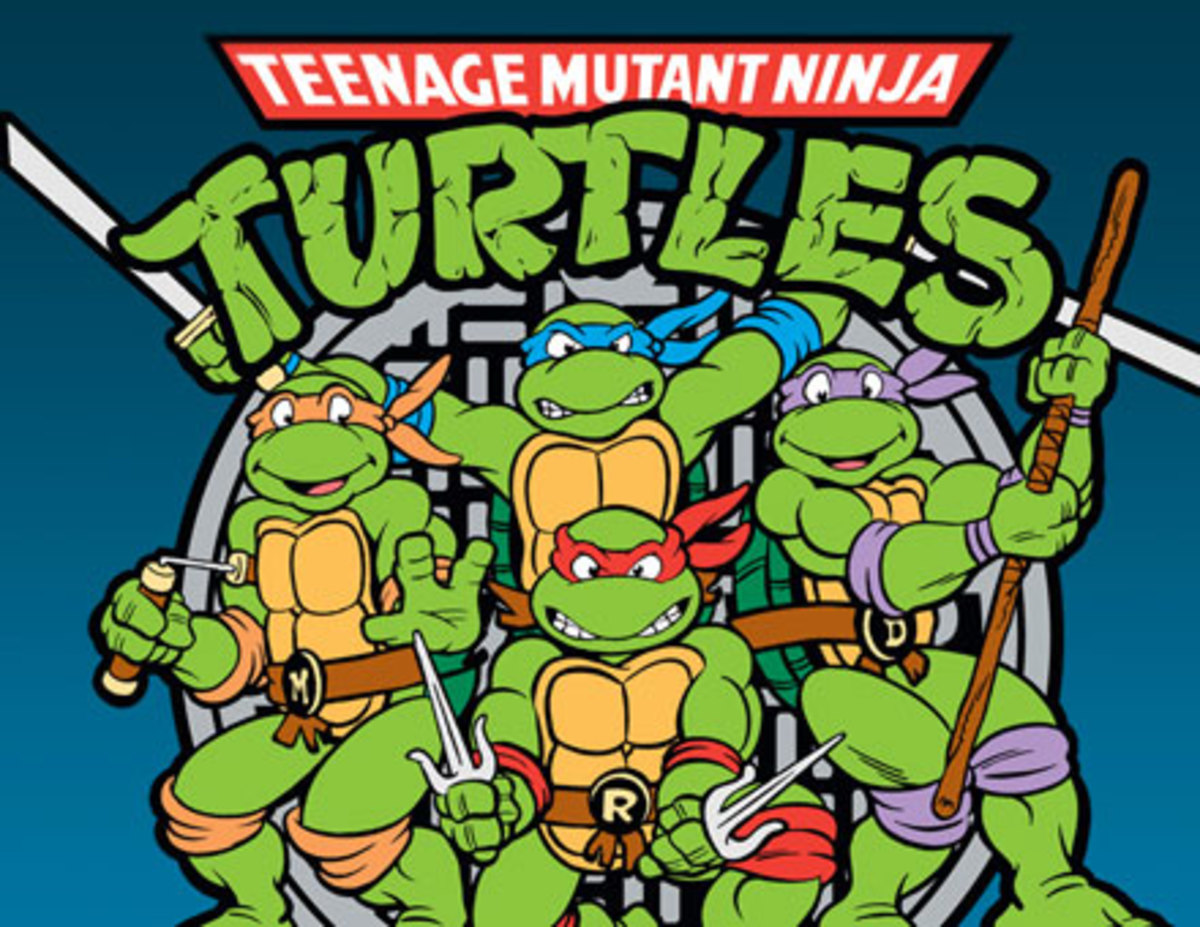The most popular video game arguments in 2015

Video game debates are ongoing
Whether it's playing the latest and greatest games, or playing the retro stuff, there sure are plenty of arguments to have. Reading gaming news can get exhausting when seeing the same old argument over and over again, so here they are organized for all to see. Opinions are those of the author and may or may not be the best recant. Avoiding technical jargon is intentional.
1. Nintendo should give up on Wii U
Ah yes. Apparently Nintendo should abandon their current console as a means to "survive" although they seem to be the only division that's reported a profit in the last year. Translation rates aside (that's where they made most of their money), Nintendo doesn't really need analysts or game companies giving them advice on how to run their business. Last I checked, they're the only ones who have been around for 30 years and their advisement team has kept them grounded through thick and thin. Granted, there are some challenges in this generation, but telling them to abandon their current console doesn't seem to have any merit.
2. Playstation 4 runs in 1080p and is better, Xbox One runs 720 - 900p
This may be a valid argument, if the one arguing it has a television screen bigger than 42 inches and can see a noticeable difference. While 1080p is truly an achievement for current generation applications, the likelihood of any player noticing the difference of 720p on a 42 inch screen or less is marginal. If the resolution is 900p on a screen up to 60 inches, players would not be able to tell which was the Playstation 4 or the Xbox One. The point is, resolution is great and all, but in practice makes no difference. It is, however, unfortunate that the Xbox One is behind even the Wii U in this area.
3. Next Gen game DLC is a ripoff
This is particularly interesting when looking at the ecosystems that both the Xbox One and Playstation 4 have created. In some cases, dropping 60 bombs on a new game does not mean the player will get the complete experience. This is a real shame and comes at the cost of leaving bits and pieces out, that seem like they should be unlockable rather than standalone purchases. Destiny's first DLC had two different price arrangements and a lackluster addition of content. Some would expect that if they paid 33% of the price for DLC that they would get 33% more game than their $60 counterpart. What they get is about 1%, or less. This is an unfortunate truth and will be debated over the next several years.
4. In app purchases are price gouging
This is not just a problem with the current generation of consoles, but app stores over the last several years. It's interesting to pay for a game and then have to pay later within the game, otherwise face some rigorous penalties. Games like Assassin's Creed Unity introduced a currency that could allow the player to unlock great gear, leaving everyone who didn't to grind heavily for it. It doesn't make for a great playing experience and is an unfortunate new practice that is seen ever so often. The penalty for not buying the currency is not so bad, but it is gradually getting worse with each game. This problem will be an interesting one in years to come.
5. Playstation 4 is winning this generation
Is it? They have yet to make any money. Microsoft has reported some screaming profits (although the Xbox division has not), Nintendo was in the green this last year, but Sony continues to be in horrible shape. Now, it's nice to know their Playstation division is doing okay, but to say they are winning couldn't be far from the truth. Having the most consoles sold where they have a much largest territory in the world than their competitors, doesn't seem like it's based on facts. Either way, the big two will continue to share metrics and measurements, but in the end it all comes down to financials. Developers may be interested in developing for the largest install base, but it may be too early to know what that means. Even with a large install base, Nintendo didn't have troves of developers on their side with the Wii. Only time will tell.
6. Nintendo should make games for phones
This isn't more an argument than it is a reality. While there is certainly speculation and two agreed upon titles that will be coming to phones, a large manufacturing company like Nintendo isn't about to completely abandon its portable business. It's connections with IBM and abilities to manufacture are what has made it the giant it is today.
7. Xbox One is spying on you
Well, that's probably true. There are a lot of terms to agree to when starting up the Xbox One. Given that they were the developers of internet explorer, which first stored cookies of customer history, it's little or no surprise that their hardware would push the envelope in this area. When they first starting doing this, it was widely unpopular, but it's frankly difficult to find any phone or online service that doesn't do the same these days. Privacy should be very important to players, but if privacy of what you are saying and doing is a big concern, then don't buy the kinect version of Microsoft's Xbox One. This is a sketchy argument, because Microsoft does offer the consumer things that they would be interested in on the Xbox One, so anyone who doesn't like this may choose to avoid this console entirely. It's possible Playstation 4 will do the same in the near future.
8. Portable gaming devices have been replaced by tablets
This is a terrifically naïve argument. The only shift that has occurred is parents buying their kids tablets. There are more portable gaming consoles sold and being played today than ever before, so it's not a matter of tablets replacing them, just the birth of a new market. Tablets are remarkable devices, but it seems the device that is most impacted by this change is the laptop computer. It's no surprise that people would rather grab a tablet to search and read the internet than boot up a computer or desktop.
9. Third party developers are abandoning Nintendo
This argument is like a roach. It creeps out occasionally, then hides, and comes out a few days later. When looking at Nintendo's history, their money has always been made from first party development. It's interesting to see that these days their biggest competitors are now their biggest supporters (Sega, Techmo, Capcom). Their relationship with these developers has never been stronger, so to suggest that third party developers are abandoning them is a farce. The facts are, companies like Ubisoft and EA have been very selective when developing for their consoles. Nintendo has very rigorous quality concerns, as their name implies it. Their reputation will not be wasted on buggy games that are not ready at launch. For this reason, some triple A titles will not see the light of day on a Nintendo console. Many may agree they can do a better job with their relationships, but aren't afraid of making hard decisions for the brand.
10. PC games are better than console
This isn't really an argument or an opinion. It's like comparing a sports car to an F-150 pickup. Games developed on a console are exactly that. Games developed on a PC are exactly that too. Some companies will take advantage of the fantastic Steam service and launch their game on that platform, so players don't have to buy a console to play the game. The price comes when the consumer has to have the specs on their machine to support the experience at the max settings. There are many people out there who are adamant about upgrading and having the best of the best technology available to play games. However, they are too far between to represent the majority of the population. Rather than spend $2000 making a powerful gaming machine, players would rather have a feasibly good quality system at the ready. All three consoles offer this to consumers and give a quality experience at a reasonable price point that allow many to join them. There are many PC gamers out there (Steam reported over 70 million subscribers in 2014), few will see marginal differences between current consoles and their PC and will likely invest in both. Keep in mind when a PC game is converted to console, there are parity changes that will sometimes enhance or reduce the quality experience. This is the same with console to PC design. PC will always have the larger file size, because that's where development came from, which does not correlate a bigger file with a better game. It just means there are more tools that go away when converting to a console.
Whatever PC the game was developed on will be the best experience, but converting it to scaled down PC's or consoles is where decisions are made. Those differences are almost always explained in great detail by the developers, prior to a game's release. Playstation 4 offers the fastest and most advanced infrastructure, which basically means the developer can be lazy and do less and create more parity between the game they are testing and its console counterpart. Trying to convert a similar experience to the Wii U, which is only about twice as powerful as the Xbox 360, can take a lot more creativity. It can be done, but will need an expert behind the conversion process.
If a developer decides to match the specs of the Playstation 4 on a PC, then they risk lowering their adoption because many PC players don't have machines that support the max settings of that game. The conversion options are then given to run at different settings, so that more can play and perhaps upgrade later. This may make PC games appear less powerful, simply because the players don't have the supported hardware.
So in the end, both are comparable and can be better than the other depending on how the developer built it on the supported device. The good news is we all get to play some fantastic looking games and enjoy them together.





